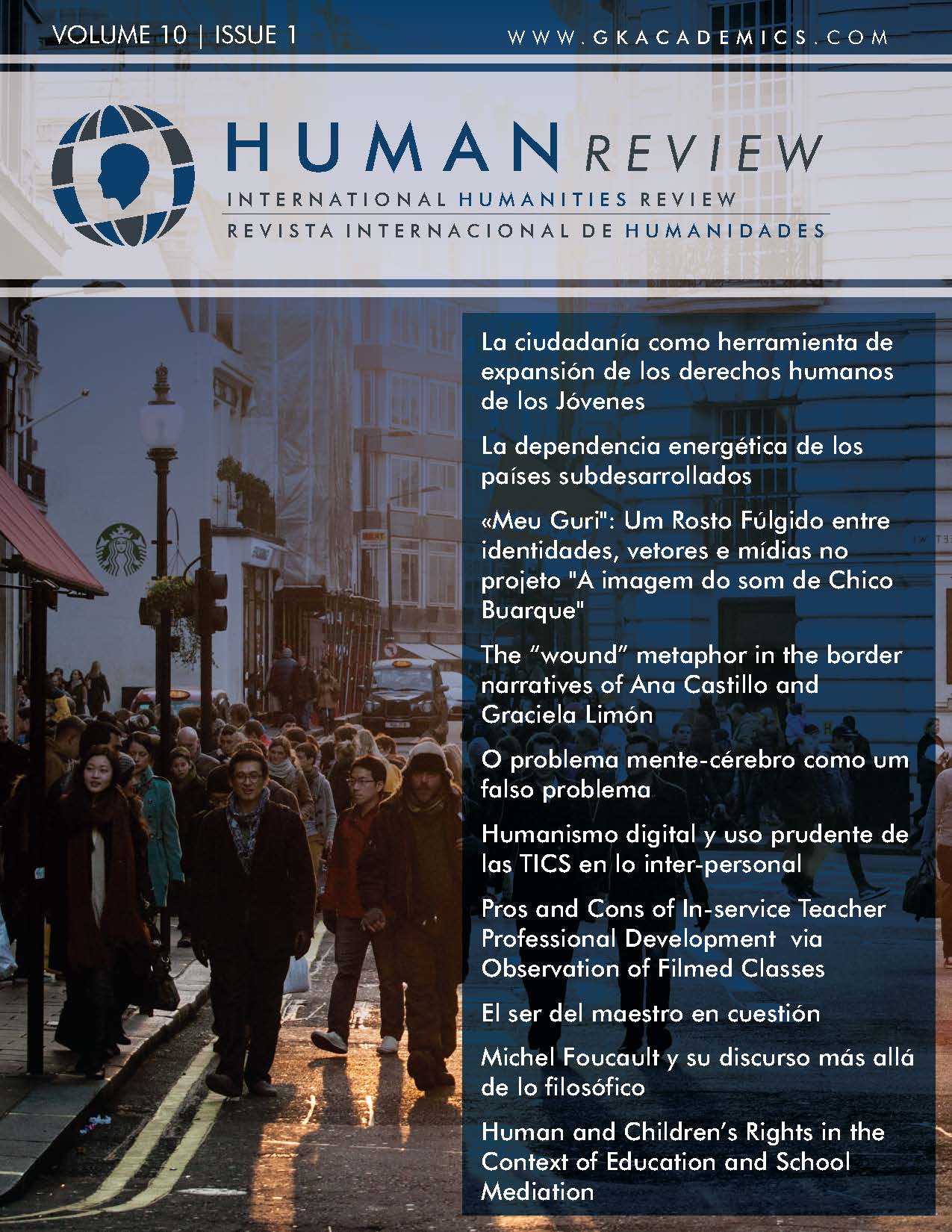Digital Humanism and Prudent Use of ICTS in the Inter-Personal
DOI:
https://doi.org/10.37467/gkarevhuman.v10.3111Keywords:
Power, Technology, Telecommunication, Digital Humanism, Manipulation, Personal Data, Relationships, PrudenceAbstract
This inquiry reflects on the power of telecommunications and social manipulation by ICT. The text shows the importance of digital humanism. It also shows that, despite this kind of interference, in the human being there always remains an interior or personal stronghold, which deserves respect and resists its control by simply technological procedures. Finally, practical guidelines are provided to counteract, through prudence and the values associated with it, the possible totalitarian drifts of these media, thanks to some of the teachings of the Spanish thinker Baltasar Gracián regarding the relational.
References
Abril, G. (8 de noviembre de 2021). Frances Haugen, ‘garganta profunda’ de Facebook, ante la Eurocámara: “Me preocupa mucho el metaverso”. El País, Tecnología, Redes sociales.
Aramburu, F. (2020). Patria. Tusquets.
Arendt, H. (2006). Los orígenes del totalitarismo. Alianza.
Aristóteles (2009). Ética a Nicómaco. Centro de Estudios Políticos y Constitucionales.
Baltar, E. (2020). La nada, el tedio y la técnica: reflexiones de Heidegger sobre el nihilismo. Differenz, 7(6), 11-30. Doi: 10.12795/Differenz.2020.i06.01. DOI: https://doi.org/10.12795/Differenz.2020.i06.01
Buber, M. (2014). Yo y tú, (C. Díaz, Trad.). Ed. Sinergia.
Cervantes, M. de (1998). El ingenioso hidalgo don Quijote de la Mancha (IIº parte, capítulo. XLII). Edición del Instituto Cervantes. Centro virtual Cervantes.
Fernández Fernández, J. L. (2021). Hacia el Humanismo digital desde un denominador común para la Cíber Ética y la Ética de la Inteligencia Artificial. Disputatio, Philosophical Research Bulletin, 10(17), 107-130.
Fernández Mateo, J. (2021). La técnica es el nuevo sujeto de la historia: posthumanismo tecnológico y el crepúsculo de lo humano, en Revista Iberoamericana de Bioética, 16, 1-15. Doi: https://doi.org/10.14422/rib.i16.y2021.004. DOI: https://doi.org/10.14422/rib.i16.y2021.004
Forsyth, F. (2019). El zorro. Plaza y Janés.
Gadamer, H. G. (1977). Verdad y Método I. Ed. Sígueme.
García Morente, M. (2011). Ensayos sobre la vida privada. Encuentro.
Gómez Pérez, R. (2016). La realidad fragmentada. Sekotia.
Gracián, B. (2005). Oráculo manual y arte de prudencia. Cátedra. Edición de Emilio Blanco.
Heidegger, M. (2001). La pregunta por la técnica. En Conferencias y Artículos (E. Barjau, Trad.). Serbal.
Heidegger, M. (2013). Carta sobre el humanismo (A. Leyte y H. Cortés, Trads.). Alianza.
López Quintás, A. (1987). El secuestro del lenguaje. APCH.
López Quintás, A. (1988). Estrategia del lenguaje y manipulación del hombre. Narcea.
López Quintás, A. (1998). La revolución oculta. PPC.
López Quintás, A. (2015). La palabra manipulada. Rialp.
Méndez, J. M. (2015). Introducción a la Axiología. Última Línea.
Ortega y Gasset, J. (1999). La rebelión de las masas. Espasa.
Ortega y Gasset, J. (2004) Meditación de la técnica y otros ensayos sobre ciencia y filosofía. Espasa-Calpe.
Orwell, G. (2006) Rebelión en la granja. Destino.
Orwell, G. (2017). 1984. La Otra H.
Pardo Porto, B. (27 de enero de 2019). Frederick Forsyth: "Cada vez es más difícil saber qué es verdad y qué no". ABC, cultura, libros, entrevista.
Uña Juárez, Francisco Octavio (2009). Nuevos ensayos de sociología y comunicación. Universitas.
Downloads
Published
How to Cite
Issue
Section
License
Those authors who publish in this journal accept the following terms:
- Authors will keep the moral right of the work and they will transfer the commercial rights.
- After 1 year from publication, the work shall thereafter be open access online on our website, but will retain copyright.
- In the event that the authors wish to assign an Creative Commons (CC) license, they may request it by writing to publishing@eagora.org









